





Survey insights reveal a surge in generative AI adoption in game development, with ethical concerns sparking industry-wide policy discussions.
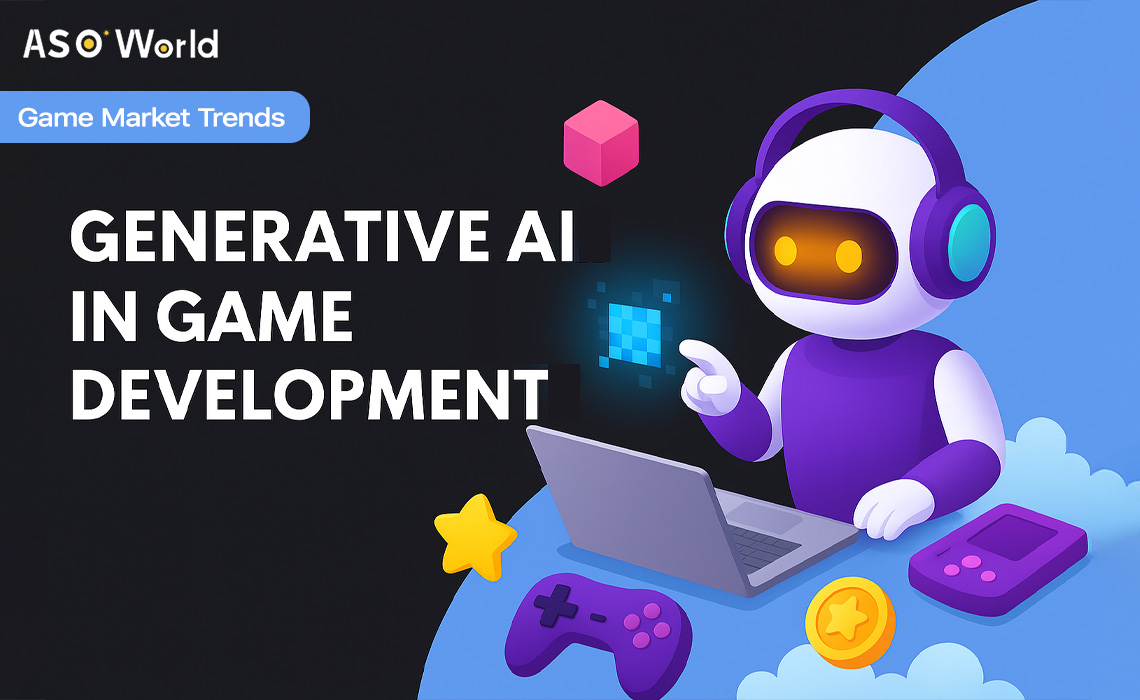
The landscape of game development is undergoing a seismic shift as generative AI tools gain traction across the industry.
With advancements in AI technology and increased accessibility to platforms such as ChatGPT, GitHub Copilot, and Midjourney, developers are exploring new frontiers in game design and production.
The Game Developers Conference's 2024 survey sheds light on how these tools are being adopted and the complex tapestry of excitement, policy-making, and ethical dilemmas they bring.
The survey, encompassing responses from a diverse group of game development professionals, indicates that almost half (49%) are working in environments that have embraced generative AI tools.
Indie developers are at the forefront of this adoption, with 37% personally employing AI technologies in their workflows—significantly higher than the 21% usage rate reported by developers at AAA and AA studios.
This disparity suggests that smaller studios may be more agile and open to experimenting with emerging technologies, possibly seeking a competitive edge or efficiencies that AI can provide.
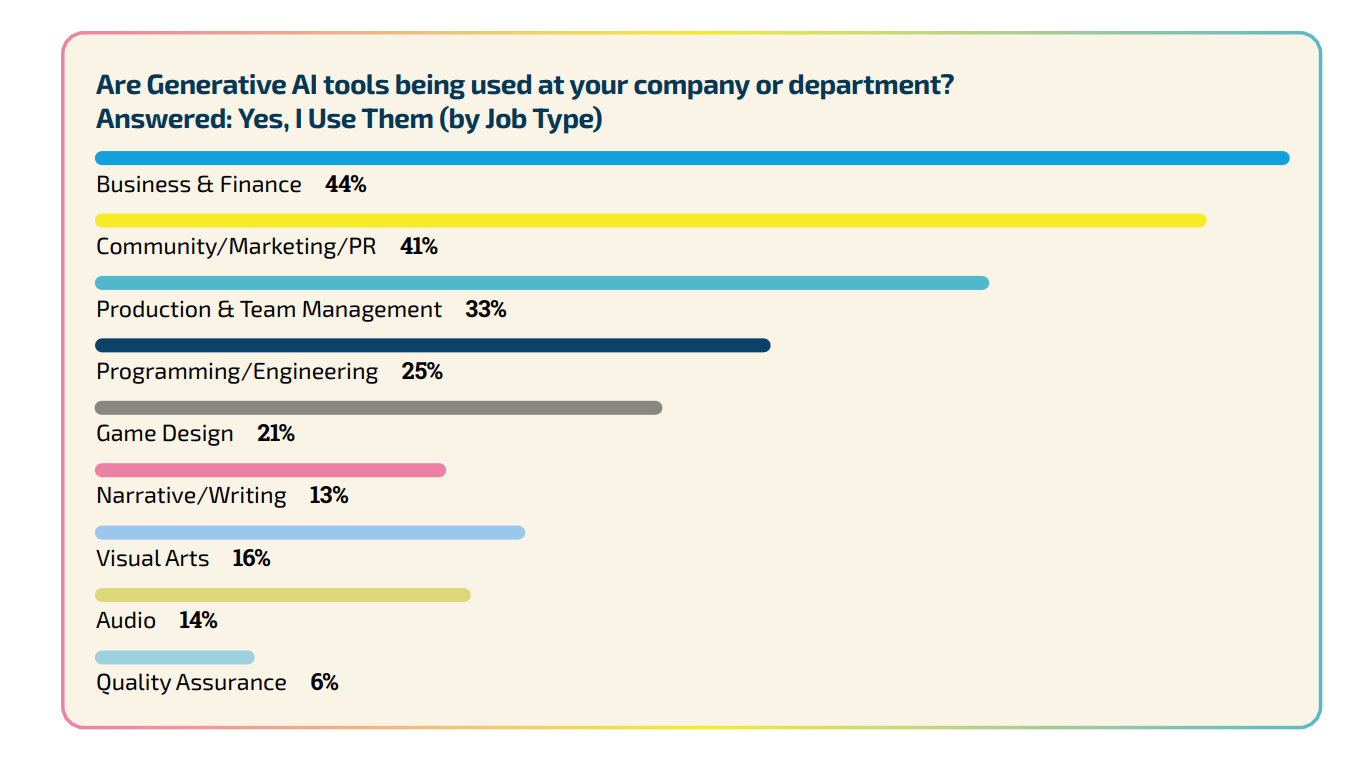
(Source: 2024 State of the Game Industry -- GDC)
The use of generative AI is not uniform across different functions within the game development process. Business and marketing departments are leading the charge, with professionals in these areas most likely to leverage AI tools.
Conversely, those in narrative and quality assurance roles are less inclined to integrate AI into their work, possibly due to concerns about the impact on creative integrity and the nuanced quality that human oversight provides.
Developers are primarily turning to AI for coding assistance, speeding up content creation, and automating repetitive tasks, aiming to enhance productivity and allow human talent to focus on more complex, creative challenges.
Yet, not all developers are convinced of AI's utility, with some seeing no use case for the technology within their specific domain. Despite these differences, there is a consensus that AI should augment human capabilities, not replace them.
>>> AI in Next-Generation Games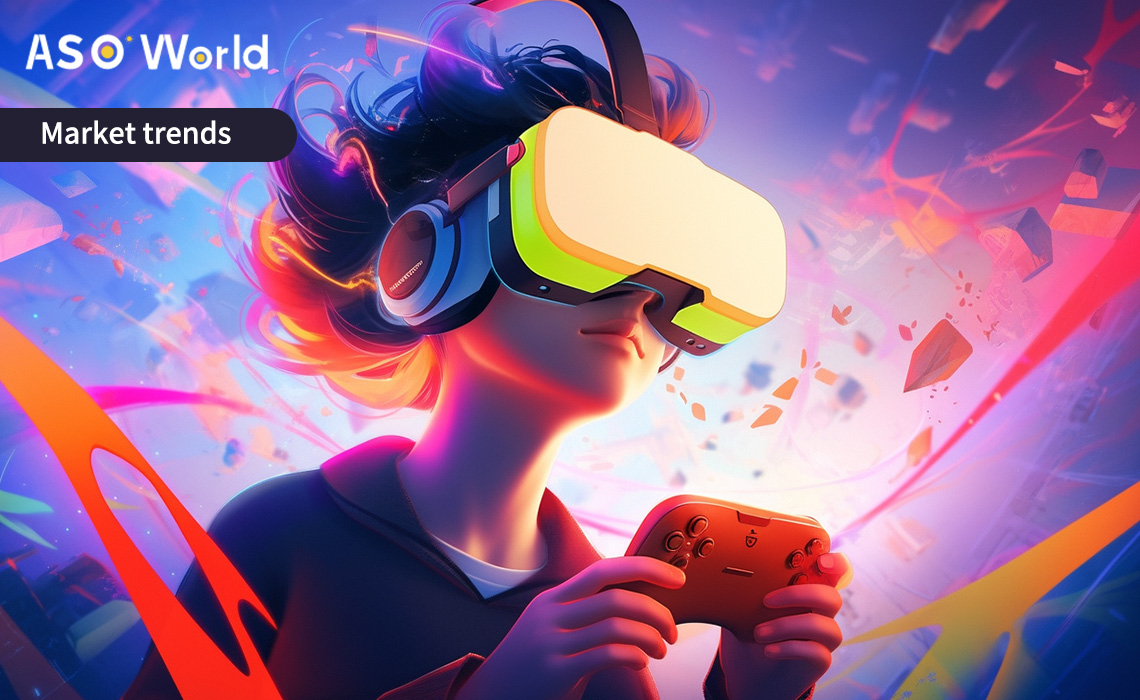
More than half of the developers report that their companies have instituted policies regarding generative AI use, with many opting to make the use of these tools optional.
Only a small fraction mandate their use, while a notable proportion—12%—are not permitted to use AI tools at all.
This is particularly pronounced within AAA studios, where one-fifth have banned the use of such tools, reflecting a more conservative stance towards AI's role in game development.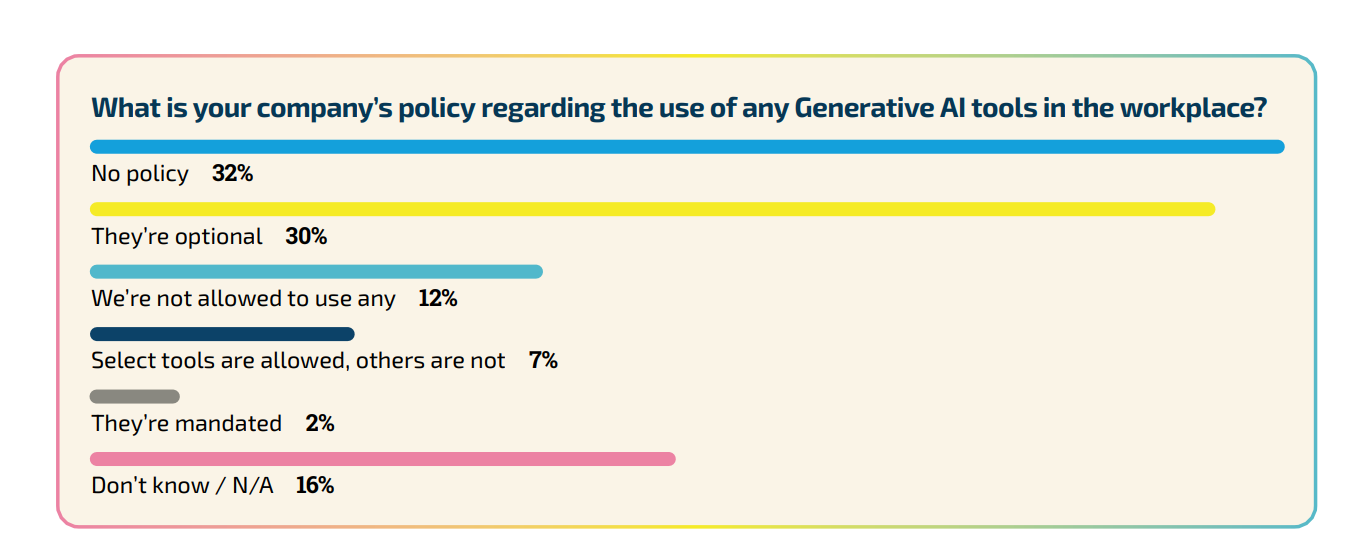
(Source: 2024 State of the Game Industry -- GDC)
The ethical implications of generative AI are a significant concern for developers. A vast majority—84%—are at least somewhat worried about the ethical use of these tools.
Concerns range from the potential for job losses as AI automates tasks traditionally performed by humans, to the unauthorized use of creative content in training AI models, and the infringement of intellectual property rights.
Developers call for the industry to credit and acknowledge human creators and to regulate the use of AI to prevent unethical practices.
Developers' predictions about the impact of AI on the game industry vary widely, with the majority anticipating a mixed outcome.
Those in business and programming roles are more optimistic about the potential for AI to bring positive change, while those in narrative and visual arts express concerns about the negative consequences AI could have on their work.
Developers are not shy about voicing their concerns and hopes for the future of AI in game development. Some envision AI as a powerful tool to optimize processes and empower creators, while others fear a future where AI supplants the role of artists and diminishes the value of human creativity.
The survey captures a range of opinions, from those who see AI as a threat to creativity and employment to those who believe it will free humans from menial tasks, allowing them to focus on innovation and artistry.
>>> AI in Game Industry: Job Opportunities in the Future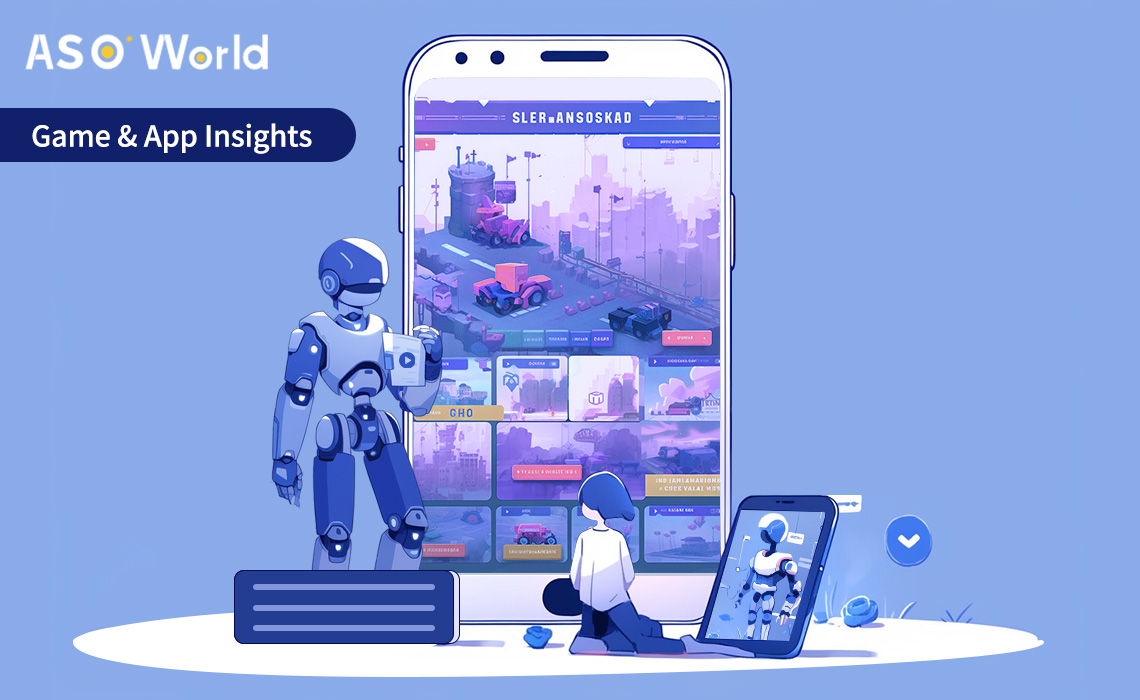
The game development industry's exploration of generative AI is a testament to its commitment to innovation and efficiency. However, the widespread ethical concerns among developers cannot be overlooked.
As the industry forges ahead with this technology, it must do so with a careful balance of enthusiasm and caution, ensuring that AI is used to support and enhance human creativity rather than to undercut it.
The policies that companies adopt today will set the precedent for how AI is integrated into the creative process and will play a crucial role in addressing the ethical challenges that lie ahead.
Click "Learn More" to drive your apps & games business with ASO World promotion service now.
Get FREE Optimization Consultation
Let's Grow Your App & Get Massive Traffic!
All content, layout and frame code of all ASOWorld blog sections belong to the original content and technical team, all reproduction and references need to indicate the source and link in the obvious position, otherwise legal responsibility will be pursued.